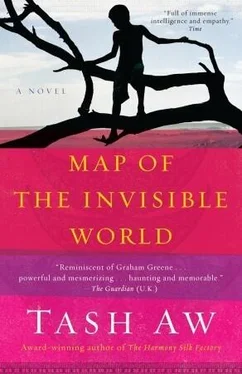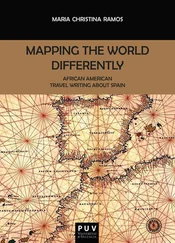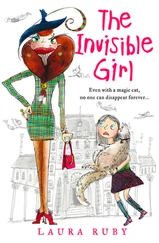Tash Aw - Map of the Invisible World
Здесь есть возможность читать онлайн «Tash Aw - Map of the Invisible World» — ознакомительный отрывок электронной книги совершенно бесплатно, а после прочтения отрывка купить полную версию. В некоторых случаях можно слушать аудио, скачать через торрент в формате fb2 и присутствует краткое содержание. Год выпуска: 2010, Издательство: Spiegel & Grau, Жанр: Современная проза, на английском языке. Описание произведения, (предисловие) а так же отзывы посетителей доступны на портале библиотеки ЛибКат.
- Название:Map of the Invisible World
- Автор:
- Издательство:Spiegel & Grau
- Жанр:
- Год:2010
- ISBN:нет данных
- Рейтинг книги:4 / 5. Голосов: 1
-
Избранное:Добавить в избранное
- Отзывы:
-
Ваша оценка:
- 80
- 1
- 2
- 3
- 4
- 5
Map of the Invisible World: краткое содержание, описание и аннотация
Предлагаем к чтению аннотацию, описание, краткое содержание или предисловие (зависит от того, что написал сам автор книги «Map of the Invisible World»). Если вы не нашли необходимую информацию о книге — напишите в комментариях, мы постараемся отыскать её.
comes an enthralling novel that evokes an exotic yet turbulent place and time—1960s Indonesia during President Sukarno’s drive to purge the country of its colonial past. A page-turning story,
follows the journeys of two brothers and an American woman who are indelibly marked by the past — and swept up in the tides of history.
Map of the Invisible World — читать онлайн ознакомительный отрывок
Ниже представлен текст книги, разбитый по страницам. Система сохранения места последней прочитанной страницы, позволяет с удобством читать онлайн бесплатно книгу «Map of the Invisible World», без необходимости каждый раз заново искать на чём Вы остановились. Поставьте закладку, и сможете в любой момент перейти на страницу, на которой закончили чтение.
Интервал:
Закладка:
“Never?” he said, running his palm over the grass lightly, as if enjoying the texture of a fine rug.
She shook her head. “It’s not that surprising. I mean, there are bugs and snakes and things in Asian grass. It’s not welcoming the way European grass is, you know — not that I know what European grass is like. I’d like Europe, I think — pleasant green meadows of delicate flowers and forests that aren’t teeming with animals that eat you. And those lovely, clean cities with sewage systems — I mean, Paris sounds wonderful.”
Karl looked across the valley, the smile still set on his face, but his eyes had gone blank. “I love sitting on the grass here. Or on the sand, the way locals do.”
The land fell away sharply before them, a steep bank of velvet green shrubs that led to the river below. Margaret could see children bathing in its silver blue water; where it flowed into deep pools the water was still and dark, almost black, and reflected the wispy clouds on that day of brilliant weather.
“Sitting on this grass,” Karl said, “I can almost remember being an infant in Buru. Almost. I pretend I can. But I can’t really.”
Margaret looked across at him and put her hand on his. He did not look at her, but continued staring down at the children splashing in the gentle current of the shallows. He did not blink, and there was a hollowness in his gaze that made Margaret feel that she ought to do something to fill that emptiness and make his eyes shine again.
“Can’t you remember anything?” she said. “I can. I can remember things that happened to me when I was two.” She laughed, but he did not respond.
“I can remember my babu,” he said at last. “Not her face or eyes or nose or any details; I just remember her being there with me and then suddenly disappearing. I can remember my father shouting and my mother crying. A house that was very silent — apart from my father’s tantrums and my mother’s sobbing. But most of all, my babu . I remember her because I remember missing her when we went back to Holland. I remember asking for her, long after we had moved back to The Hague, asking when Babu was going to come back, but no one would ever answer. She was a proper babu , you know — she nursed me. My own mother couldn’t express milk when I was born. When we were back in Holland, whenever I got ill — which was often — she would say, ‘You’re such a weak child because you were nursed by that woman .’”
“That’s awful.” Margaret noticed that Karl made no attempt to remove his hand from hers. “You weren’t really ill that often, were you?”
“All the time. I hated The Hague. I hated that house. Now that I can remember. It had very low ceilings with beams that were painted black, and you could see the cobwebs forming on them, silky balls of fluff that I always wanted to touch. There was a small window in my room at the top of the house. Half the view was obscured by the sloping roof, and in the winter, when the snow settled on the tiles, all I could see was this blurred screen of white, and in the distance the gray of the sky. I would lie in bed with the sheets pulled up to my face, and the woolen blankets would tickle my nose. I never got used to wool. And I would feel the cold seeping into my chest, and I would know that I was falling ill. I think I had probably forgotten about Buru by then, but my body hadn’t. It always craved warmth. When the other children put on their hats and gloves and went skating, I knew that I wasn’t one of them, that I was from somewhere else. At school, during history lessons, whenever the teacher said, ‘ We conquered’ or ‘ We civilized them,’ it took me a while to understand who we and they were. Isn’t it bizarre? On those cold days I used to imagine myself as a child in Buru, or somewhere else in the Indies — here, for example. I would re-create scenes. And in these scenes I was playing in the sun, swimming — oh yes, that’s another thing I can remember from Buru, the sea. I would imagine myself playing with other local kids, imagine how the sand felt between my toes and my fingers. And that consoled me. Because I thought to myself, One day I will be there again. I didn’t know when, but in the way that children do, I thought it could happen at any moment — and I would be a child in the Indies again. But then, of course, well …”
He smiled at Margaret — a smile that seemed as frail and ephemeral as a butterfly, so delicate that she feared she might crush it if she touched it. She reached out and touched his cheek, barely brushing his skin with the back of her hand, her fingers feeling the softness of his face. She wished her fingers were not so bony; she wished she did not have knobby knuckles, but the gracefully curved fingers of Balinese child dancers. He put his hand over hers, pressing her hand gently between his cheek and his palm, holding it like this for a few seconds; a minute; a lifetime. And then he leaned his head and rested it on her shoulder. She could no longer see his face but could smell his hair — a sweet milky aroma. She said, “But then what?”
“What?”
“You said, ‘But then …,’ only you didn’t finish your sentence.” She began to stroke his hair, drawing her fingers lightly through the long, silken strands.
“I didn’t know how to express what I was thinking.”
“You were going to say, But then we grow up and we find we don’t have our childhood anymore. Is that right?”
She felt the tiniest movement of his head, an imperceptible nod. “It’s not so bad, being an adult,” she continued. “I wish I were an adult. Officially, I mean.”
“You are very grown up indeed, young madam.”
“I can’t say I ever had a childhood. I’ve been like this ever since I can remember. Grown up, that is.”
He lifted his head and looked at her. The darkness in his eyes had lifted, she thought. “There’s something else,” he said, hesitating, waiting for her approval, it seemed, before he continued. His gaze dropped, and he began drawing his palm in little circles on the dry grass once again. Margaret did not say anything. His forehead was so close to her face that she could have leaned forward and planted a kiss on it, right on the thin crease in the middle of his brow. “There was something else I used to imagine. It was this: When I imagined being different from the other Dutch kids, it wasn’t simply because I had lived some where else. I believed — I made myself believe — that it was because I really wasn’t like them. That I wasn’t Dutch. Shh. Don’t say any thing”—he reached out and put a finger to her lips; it was cool and very steady—“let me tell you, otherwise I’m never going to be able to share it with anyone ever again. I used to tell myself that I was only partly Dutch, that my babu was my real mother. Isn’t that silly? It didn’t seem silly when I was six or seven. It felt real, and it comforted me. One day my father was in a very good mood, I don’t know why. We were eating pancakes and apples. He said, ‘When I was a young man in the Indies, pancakes were the food I missed most from home; none of the babu I had could learn how to make them properly.’ And my mother said, ‘Well the last babu learned many things from you.’ Looking back, it probably meant nothing at all, absolutely nothing, but that day I took it as proof that my babu was my real mother. And as I grew older I would make this history more elaborate. I would imagine my father taking the boat from Buru to Batavia to search for a European wife and falling in love instead with a local girl and taking her back to Buru. He would go to Holland on home leave, and there he would meet my mother, but when they returned to Buru they would find the babu pregnant — with me. The funny thing is, the more I thought about it, the more I began to live it. Sometimes the boys at school used to accuse me of being an Indo — you know, a Eurasian. Look.” He put his arm against hers so that their forearms touched from elbow to wrist. “See? You’re pale. I’m much darker in comparison.”
Читать дальшеИнтервал:
Закладка:
Похожие книги на «Map of the Invisible World»
Представляем Вашему вниманию похожие книги на «Map of the Invisible World» списком для выбора. Мы отобрали схожую по названию и смыслу литературу в надежде предоставить читателям больше вариантов отыскать новые, интересные, ещё непрочитанные произведения.
Обсуждение, отзывы о книге «Map of the Invisible World» и просто собственные мнения читателей. Оставьте ваши комментарии, напишите, что Вы думаете о произведении, его смысле или главных героях. Укажите что конкретно понравилось, а что нет, и почему Вы так считаете.












